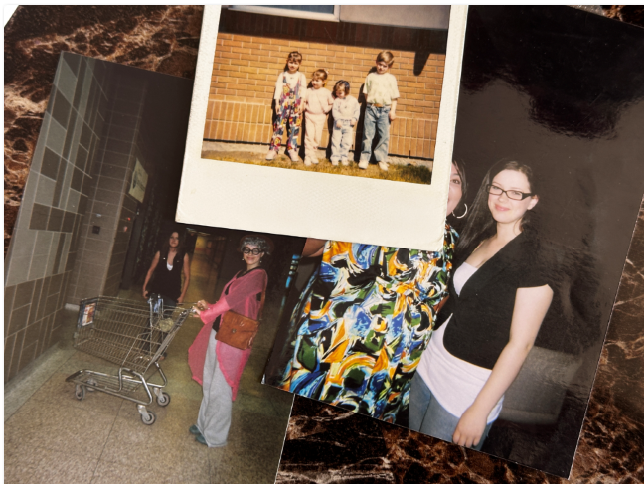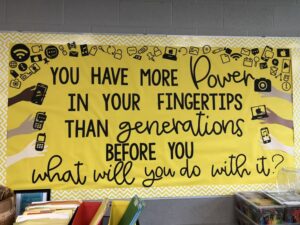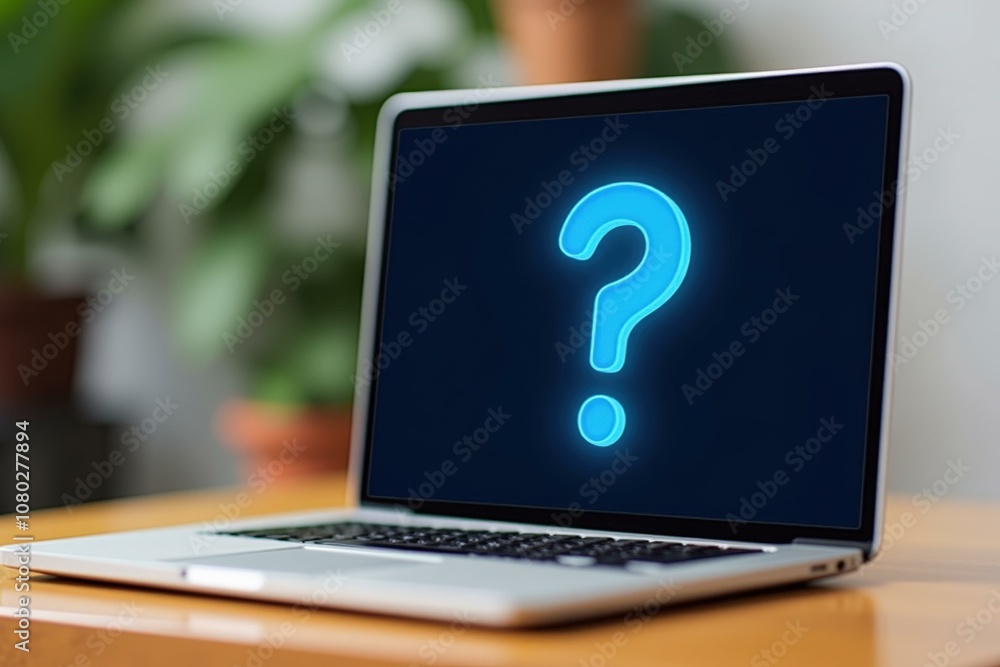Growing up in the 90’s and early 2000’s, I was lucky to experience life before it was filtered, posted, and liked. We had landlines, MSN Messenger, and MySpace if you were really ahead of the curve – but no one was documenting every moment of their life for a bunch of people on the internet. I didn’t get Facebook until the end of Grade 12, and even now, I rarely post on my personal social media pages. It just never felt natural. (This blog is probably the most I’ve ever put my life out there online, and it has definitely been a learning curve.)

Honestly, while I have fond memories and a box of photos that contain proof, I’m soo glad my awkward teen years weren’t captured in Instagram photos or TikTok trends. Looking back, I’m genuinely grateful that my awkward, emotional, figuring-it-out years weren’t lived online. No digital footprint of bad decisions or teen drama. No curated feeds or pressure to look perfect. Just real life – messy and unfiltered.
But kids and teens today? They don’t have that same luxury.
Shame, Perfection, and the Cost of a Digital Life
Watching Monica Lewinsky’s TED Talk and connecting it to our in-class discussions, really made me think about how the internet has become a breeding ground for shame. I remember hearing about her as a kid, and now as an adult I realize her story is heartbreaking – her mistake was personal, but it became public, and the global humiliation stuck with her for decades. In Jon Ronson’s How One Tweet Can Ruin Your Life, we saw how quickly the internet turns people into punchlines or villains, sometimes without any chance to explain or grow.
But it’s not just about being publicly shamed. Sometimes the real danger is in the pressure to appear perfect.
Madison Holleran’s story has stayed with me. A university athlete with a beautiful Instagram feed that looked like she had it all together – when in reality, she was struggling with her mental health. the contrast between her carefully curated online presence and what she was feeling inside is a powerful reminder that social media doesn’t always show the full picture.
What Worries Me Most as a Parent & Future Teacher
Our students are building their digital identities before they’ve fully built themselves. Their social media feeds, comments, and messages become part of a footprint they might not fully understand – and definitely can’t always control. The pressure to be liked, or seem “happy”, to be perfect – combined with the fear of being judged or “cancelled” – is overwhelming, especially when you’re still figuring out who you are.
That’s why we need to regularly talk about digital citizenship in our classrooms – not just in the terms of safety, but in terms of identity, empathy, and mental health. We need to help students understand that what they post stays with them, but also that people are allowed to grow and change. We need to teach them that behind every post, every tweet, and every viral moment is a human being who deserves compassion.
As educators, we can create space for conversations about what it means to be real online, how to navigate mistakes with grade, and how to use digital platforms responsibly. It’s nit just about protecting their image – it’s about protecting their well-being.

I’m thankful I got to grow up offline. But now, my role is to help this generation grow up aware– of their power, their presence, and the impact they leave behind in the digital world. Because if we want to raise kind, thoughtful digital citizens, it has to start in the safety of the classroom – with honest conversations, critical thinking, and a while lot of empathy.

One Comment
Shaunna Dunn
Sky-anne,
I can relate to your sentiments about growing up before life was ‘filtered, posted, and liked’.
As a child of the 80’s, I have a hard time with letting my kids spend time online at all. I find myself getting real old-time nostalgic, “When I was your age…we didn’t have the internet and had to make our own fun”. I want them out on bikes, building forts and going on Goonie-esque adventures.
One of the big things I’m taking away from this class is just how important it is for me, as a parent, to allow them some freedom online and offer solid and consistent guidance. And perhaps, part of my apprehension about having them online too much…is that it requires ME to do some serious learning in order to give them the tools they need.
But building up my own digital literacy, if just a little, has me eager to offer future students (and my own kids) really authentic and healthy engagement online. For the EHE course I’m currently taking, I found the opportuinty to build digital citizenship and conversations about media/technology and self-image into a grade 8 health unit assignment. There were so many great resources to help students build their awareness and ownership of their online experiences.
I really like this series of short videos BodyKind Online:
https://www.youtube.com/watch?v=Y0vGuMOgu1Y
Hope this is something you can use for your future classrooms as well!
Thanks for sharing your perspective.